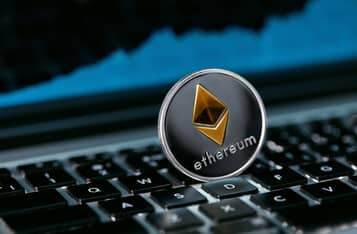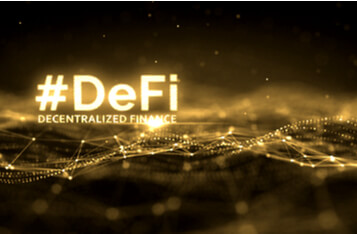DEFI
What is DeFi?
Decentralized Finance, DeFi as a concept is to be able to offer almost all the financial services available with legacy and centralized institutions, typically banks, but on the blockchain. Whatever traditional services financial institutions provide can be expected to be offered through DeFi. In short, Defi is blockchain-based financial services that traditional financial services map into, creating new services or derivatives stemming from blockchain's unique features. Although we have had concepts like distributed computing and decentralized computing for decades, DeFi is in fact a new concept and an expansion of the application scope of blockchain as infrastructure.
Decentralized Finance, DeFi as a concept is to be able to offer almost all the financial services available with legacy and centralized institutions, typically banks, but on the blockchain. Whatever traditional services financial institutions provide can be expected to be offered through DeFi. In short, Defi is blockchain-based financial services that traditional financial services map into, creating new services or derivatives stemming from blockchain's unique features. Although we have had concepts like distributed computing and decentralized computing for decades, DeFi is in fact a new concept and an expansion of the application scope of blockchain as infrastructure.
Shapella Upgrade, Privacy Concerns, Hacks, and Financial Inclusion
The DeFi space had a busy week with the successful completion of the Shapella upgrade on Ethereum, concerns over privacy related to staking, a major DeFi hack, and a partnership between Fonbnk and Tanda to increase financial inclusion in Africa. The top 100 DeFi tokens had a bullish week, and Glassnode predicted only a small percentage of staked ETH would be withdrawn.
DeFi Hackers Mint $11.6M in Stablecoins
Blockchain security firm PeckShield identified a hack that allowed an attacker to mint over 1 quadrillion Yearn Tether and then swap it for other stablecoins worth $11.6M. The attacker also managed to transfer 1,000 ETH to the cryptocurrency mixer Tornado Cash. DeFi protocols Yearn.finance and Aave have confirmed that their current contracts and protocols were not affected by the exploit.
Euler Finance Hacker Returns Stolen Funds
Euler Finance has recovered most of the funds stolen in a flash loan attack that drained millions of dollars from various tokens, including Dai and USDC. After negotiating with the hacker, Euler Finance convinced the individual to return the majority of the stolen funds, resulting in the recovery of 12 million DAI and 10,580 ETH. The crypto community has applauded Euler Finance's efforts to recover the funds and restore investor confidence.
PancakeSwap Launches V3 with Lower Fees and Enhanced Capital Efficiency
PancakeSwap has launched version 3 of its automated market maker platform, featuring lower fees and enhanced capital efficiency. Liquidity providers can now select custom price ranges, allowing specific control over capital investments, and the release also includes four new trading fee tiers. The platform serves over 1.5 million unique users and has more upcoming features in development.
Stablecoin Depeg Event Reveals Risks to DeFi and Traditional Finance
Recent failures of established financial institutions, such as Silicon Valley Bank and Signature Bank, have highlighted the potential for distress to spread to the decentralized finance (DeFi) sector. The depegging of stablecoins, including Circle's USD coin (USDC), has also brought governance risks related to the custody of reserve assets to the forefront. Moody's anticipates that regulators could increase their scrutiny of stablecoins and require greater counterparty diversification.
Uniswap V3 Protocol License Expires, Allowing Developers to Fork Code
Uniswap V3 protocol’s Business Source License (BSL) has expired, allowing developers to fork the code and deploy their own decentralized exchange (DEX). The new “General Public License” now applies to the protocol. To fork the code, developers must use an “Additional Use Grant.”
DeFi Execs Argue KYC as Solution to Combat Money Laundering in the Industry
DeFi executives at the WOW Summit in Hong Kong endorse KYC as a solution to tackle AML issues and combat hackers laundering stolen funds into clean money. However, there are concerns that KYC alone will not solve all AML problems and that different mechanisms should be used for different solutions.
US District Judge Rules in Favor of Custodial Arrangement for bZx DAO Members
A US district judge has ruled that bZx DAO transactions are custodial due to the ability for developers to upgrade a smart contract where the key is held by a single developer, as highlighted in a class-action lawsuit against bZx DAO and others. This may impact DeFi platforms that use multisigs and require them to obtain custody licenses to comply with the law.
Coinbase Identifies Four Key Innovations for its Layer-2 Network
Coinbase has identified four crucial innovations, including inflation-pegged "flatcoins," to be built on its recently launched layer-2 network Base. The other three areas are an on-chain reputation system, an on-chain limit order book exchange, and safer tools for DeFi.
Euler Finance Hacker Returns Majority of Stolen Funds
The hacker behind the $196 million exploit on lending protocol Euler Finance has returned the majority of the stolen assets, including 51,000 ETH and 7,737 ETH, worth a total of over $101 million at the time of writing. The hacker still controls some of the stolen assets, and the hack is considered the largest DeFi hack of 2023.









